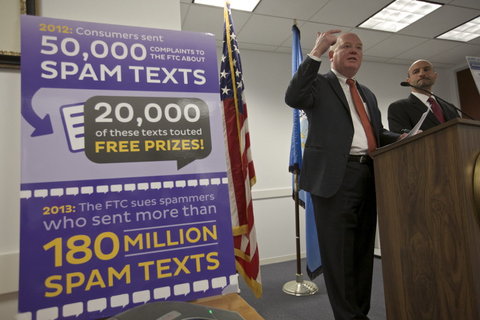A Dutch foundation with the power to block the proposed 7.2 billion euro, or $9.5 billion, bid for the Dutch cellphone operator KPN by América Móvil, the Latin American telecommunications giant owned by Mr. Slim, has expressed concern about the deal.
América Móvil announced last Friday that it was offering to buy the 70 percent of KPN that it did not own.
Analysts said the deal, which will be put to a shareholder vote in September, may be an attempt to derail the proposed sale of KPN’s German subsidiary, E-Plus, to a Spanish rival, Telefónica, in a cash-and-stock deal worth 8.1 billion euros.
In a statement released late on Tuesday, the KPN Foundation, an independent entity in the Netherlands that has the right to veto hostile takeovers, said it was concerned that América Móvil had not made clear its plans for KPN or whether it would support the E-Plus sale.
“América Móvil didn’t provide enough meat on the bones about its plans,” Walter Samuels, a spokesman for the foundation, said on Wednesday. “We wanted to give a statement to the market so that people know we exist.”
Under Dutch law, the foundation, which was created when KPN was privatized starting in the mid-1990s, has the right to buy the outstanding so-called preference stock in the Dutch company, which carries voting rights. This form of call option would allow the foundation to block América Móvil’s proposed takeover.
Mr. Samuels said that it had not moved to block the $9.5 billion deal, though it had not discussed its concerns with América Móvil.
“That’s a bridge further down the road,” Mr. Samuels said. “América Móvil is obliged to disclose timely information to the market about their plans.”
Shares in KPN, which have fallen 44 percent in the last 12 months, dropped around 2 percent, to 2.29 euros, in afternoon trading in Amsterdam on Wednesday. América Móvil plans to offer investors 2.40 euros for each of their shares in KPN, a company statement said.
A crucial issue in the takeover of KPN is the future of E-Plus, which will be decided at the September meeting of KPN’s shareholders. KPN agreed in July to sell E-Plus to Telefónica, though analysts warned that América Móvil might look to keep the unit if it completes a takeover.
In a statement last week, América Móvil said it had not decided how to vote on the pending sale of E-Plus. Last Friday, KPN said it would continue with the shareholder meeting to decide the fate of E-Plus, despite the proposed takeover offer from América Móvil.
Alliances are shifting in the European telecommunications sector. This year, deals involving European telecommunications companies represent around 77 percent, or $81 billion, of the globally announced takeovers in the sector, according to the data provider Mergermarket.

Article source: http://www.nytimes.com/2013/08/15/business/global/america-movils-bid-for-kpn-under-scrutiny.html?partner=rss&emc=rss
